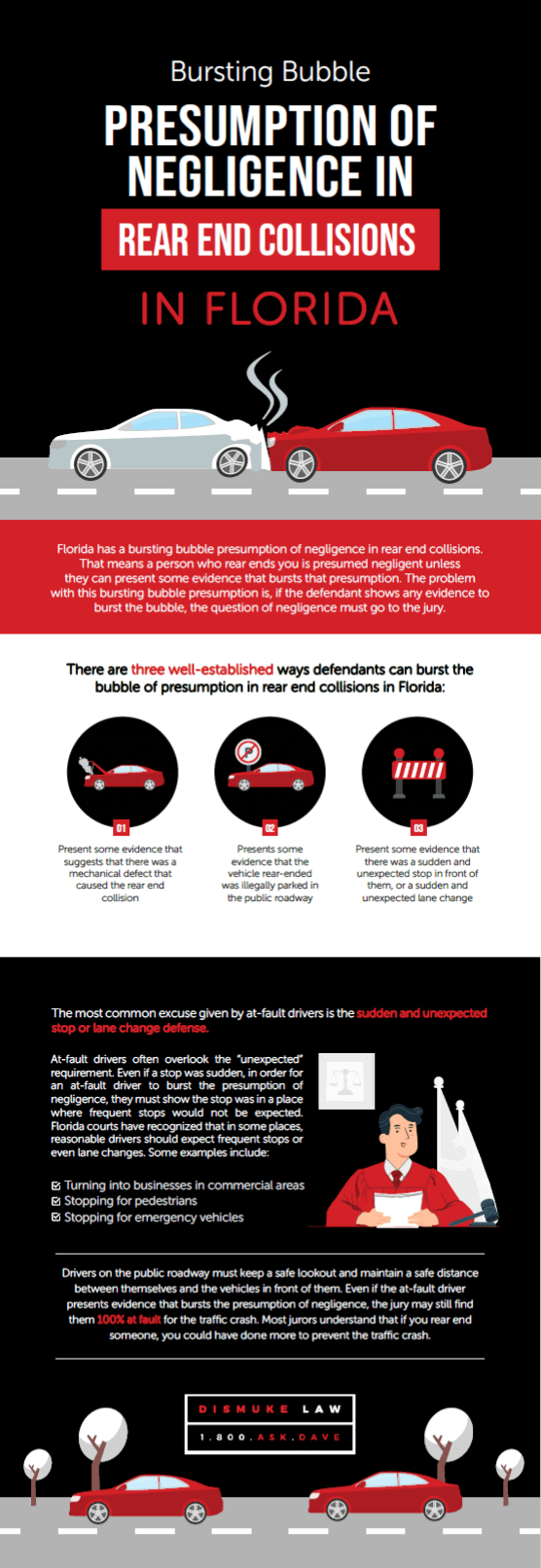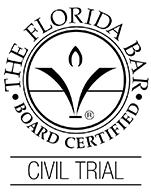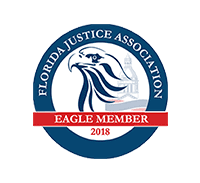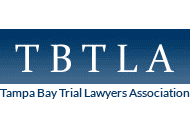If you would like to speak with a professional who can review the facts of your case and advise on possible routes to compensation, call us today at 863-292-6922. We offer 100% free consultations and will not collect a fee unless you win.
Rear-end collisions can be deadly
They are also all too common, unfortunately. The National Highway Traffic Safety Administration reports that there are more than 1.7 million rear-end collision crashes in the US every year. Sadly, several of these accidents cause injury or even fatality. The NHTSA reports that more than 500,000 people report an injury from these crashes, and another 170,000 lose their lives.
The major problem with rear-end collision is that you simply don’t see them coming. It carries essentially the same implications as being tackled from behind by someone you didn’t see coming. The suddenness of the accident, coupled with your unpreparedness, can result in serious injury, including whiplash or even a broken neck.
In addition to this, most vehicle protections are designed to shield a driver from impact on the front of the vehicle. Even with your seatbelt on, a rear-end collision can still cause a significant injury that leaves you needing medical treatment and lengthy rehabilitation. Thankfully, you are not without options if you have been injured in one of these accidents.
Filing a rear-end collision case
You may be entitled to claim compensation for your injuries after the accident. However, one thing that is confusing to people when in a traffic crash that is not their fault is the requirement to file a personal injury protection claim (PIP) with your insurance company first. PIP is sometimes referred to as no-fault coverage in Florida.
Florida is one of 13 no-fault states in the US. Under Florida’s no-fault law, all drivers must carry a minimum of $10,000 in PIP insurance. All people entitled to the coverage are required to use their PIP before using their health insurance or seeking damages from the at-fault driver.
But if your injuries are more severe than this, you may be able to recover compensation from the at-fault party or their insurer.
Regardless, you must have a legally sound claim before you are entitled to claim damages for your injuries. There are legal rules that guide this and dictate what factors must be present in your case. These factors are:
- The other driver must owe you a duty of care. This is usually straightforward as every driver owes everyone else a duty to drive carefully and avoid causing injury or damage.
- They must have breached this duty of care. Under Florida law, a rule called the “bursting bubble presumption” assumes if you were hit by another driver in a rear-end collision, they must have breached this duty. This means you don’t have to prove they were at fault; they are presumed to be at-fault.
- You must have suffered harm or loss. Since the personal injury laws are designed to compensate you for what you have lost or suffered, it must be clear that you have suffered some harm or loss.
- Your injuries or the damage to your vehicle must be directly linked to the other driver’s negligence.
As your Florida rear-end collision attorney would explain, the key part of establishing your case on these factors is determined by the evidence in your case.
The Bursting bubble presumption in Florida
As mentioned earlier, this presumption assumes fault on the part of the other driver, if you were the victim in a rear-end accident. The basis is simple. If you were the one hit from behind by another driver, there’s a high probability that you had no idea what was happening and had no fault for the crash.
However, the presumption does not hold in all circumstances. There are instances when the other driver may show evidence that mitigates their fault or “burst the bubble.” These instances include:
- Mechanical defect: Where the driver can show that they slammed into your vehicle due to a mechanical defect in their vehicle, they may escape the presumption. But the mechanical defect must not have come from their own failure to maintain their vehicle in good working order. It must have been attributable to a defect that was not in their power to cure, e.g., a product defect from the manufacturer or maintenance defect from the mechanic.
- Illegally parked on a public roadway: If you were parked or trying to park illegally on a public roadway, the presumption of liability is burst. This means you were partially at fault for the accident and cannot benefit from the assumption that the other driver was entirely at fault.
- Sudden and unexpected stop or lane change: It is a basic fact that people should not ordinarily stop or brake or change lanes suddenly in moving traffic. If you did this and a rear-end collision occurs, you may likely be partially at-fault unless other qualifying factors can be raised on your behalf. For instance, the other driver will not have the benefit of this exception if the area where you stopped is one where you ordinarily should or would expect frequent stops e.g. business fronts, allowing emergency vehicles to pass, etc.
Where there are facts indicating that the bubble has been burst, the presumption of liability will no longer exist. When the presumption of liability is burst, it is the job of the jury to determine fault between you and the other driver, and what the degree of fault was between both of you.

Copy and paste the code below to share this image:
Clearly, if the law is not on your side of the claim, it may affect your ability to receive compensation for injuries or damage above your personal injury protection. However, a skilled Florida personal injury attorney can help you assert facts that strengthen your claim and increase the chances of a positive recovery.
Our Florida car accident attorney can help
The highly-rated and skilled rear-end collision attorneys at Dismuke Law have helped hundreds of Florida residents recover the compensation they need to move on with their lives. We can help you too. Call us at (863) 292-6922 for a free, confidential consultation today.
Author:



![cftla-member[2]](https://www.1800askdave.com/wp-content/uploads/2022/03/cftla-member2.png)
![cftla-member[3]](https://www.1800askdave.com/wp-content/uploads/2022/03/cftla-member3.png)










